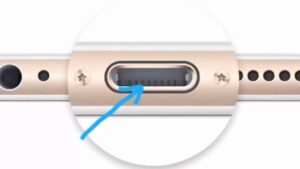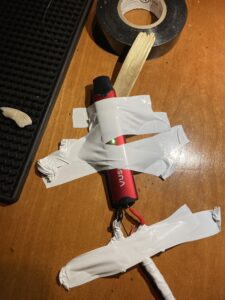Will an RV converter work without a battery? It’s a common question among RV owners, and the answer might surprise you. While the RV converter is designed to convert AC power to DC power to run your appliances and charge your batteries, it actually requires a battery to function properly. Without a battery, the converter won’t be able to regulate the voltage and provide a stable power supply to your RV. So, if you’re wondering about using your RV converter without a battery, let’s dive into the details and understand why it’s essential to have one.
Will RV Converter Work Without A Battery?
If you own an RV or are considering purchasing one, you may have wondered if the RV converter will work without a battery. The RV converter plays a crucial role in supplying power to various electrical components in your RV, such as lights, appliances, and outlets. Understanding how the RV converter operates and whether it requires a battery is essential for any RV owner. In this article, we will explore the topic in detail, addressing subtopics such as the function of the RV converter, the role of the battery, and possible scenarios when operating an RV without a battery.
Understanding the Function of an RV Converter
An RV converter converts incoming AC (alternating current) power into DC (direct current) power to supply electricity to the RV’s electrical system. It serves two primary functions:
- Charging the battery: The RV converter ensures the battery is properly charged by converting AC power from a campground hookup or generator into DC power. This helps maintain the battery’s charge and allows it to power various electrical components even when the AC power source is unavailable.
- Powering the RV: The RV converter also directly powers the electrical system in your RV when it is connected to a reliable source of AC power. This enables the functioning of lights, appliances, and other electrical devices without relying solely on the battery.
The Role of the RV Battery
The RV battery plays a vital role in the electrical system of your RV. It acts as a backup power source and provides electricity when there is no external source available. Here are some key functions of an RV battery:
- Power during travel: The RV battery allows you to power essential electrical components while you’re on the road, such as lights, water pump, and fridge. It keeps these systems operational even if the engine is turned off.
- Power during boondocking: Boondocking refers to camping in remote areas without access to external power sources. In such situations, the RV battery becomes the primary source of power, supplying electricity for an extended period.
- Power during temporary disconnection: In case of a campground power outage or when you’re not connected to a power source, the battery ensures continuous power supply to critical systems in the RV, such as the refrigerator, furnace, and water heater.
Possible Scenarios without an RV Battery
While the RV converter primarily relies on an RV battery to function optimally, there are a few scenarios where you might operate the RV without a battery. Let’s explore these scenarios in detail:
1. Plugged into Shore Power or Generator
When your RV is connected to shore power at a campground or powered by a generator, the RV converter can operate without the RV battery. In this scenario, the converter draws AC power and converts it to DC power to directly supply electricity to the RV’s electrical system. As long as the external power source remains connected, the battery is not required, and you can still enjoy the convenience of powered lights, appliances, and outlets in your RV.
2. Running DC Components
Certain RVs have DC components that are directly powered by the RV converter without relying on the battery. For example, LED lights, water pumps, and some appliances may be designed to operate solely on DC power. In such cases, even if there is no battery or the battery is disconnected, these components will still function as long as the RV is connected to an external AC power source.
3. Limited Power Availability
In situations where you have limited power available, such as when running on a smaller generator or using solar panels, the RV converter can still function without a battery. However, it is important to note that without a battery, you will have limited power storage capacity. This means that power-intensive devices or appliances may not operate optimally or may drain the available power quickly. In such cases, it is wise to prioritize essential electrical systems and be mindful of power consumption.
4. Battery Removal or Replacement
In rare cases, you might temporarily remove or replace the RV battery for maintenance or replacement purposes. During this period, if your RV is connected to shore power or a generator, the RV converter can still power the electrical system without the battery’s presence. However, it is crucial to reinstall the battery as soon as possible to ensure proper functioning and backup power availability.
While an RV converter primarily relies on an RV battery to function optimally, it can work without a battery in specific scenarios. When connected to shore power or a generator, the RV converter draws AC power and converts it to DC power to supply electricity to the RV’s electrical system. Additionally, certain RVs have DC components that can be powered directly by the converter. However, it is important to note that the RV battery plays a crucial role as a backup power source and ensures uninterrupted power supply in case of power outages or boondocking situations. Understanding the intricacies of the RV converter and battery system will help you make informed decisions and effectively manage your RV’s electrical needs.
Frequently Asked Questions
Will an RV converter work without a battery?
An RV converter is designed to convert alternating current (AC) to direct current (DC) and charge the RV battery. However, it is possible for an RV converter to work without a battery under certain conditions.
Can I run my RV converter without a battery?
While it is technically possible to run an RV converter without a battery, it is not recommended. The converter relies on the battery to stabilize the electrical system and provide a buffer for power fluctuations. Without a battery, the converter may not function optimally and could potentially cause damage to other electrical components in the RV.
What happens if I disconnect the RV battery while using the converter?
If you disconnect the RV battery while the converter is in use, the electrical system may become unstable. The converter relies on the battery to absorb excess power and maintain a consistent voltage. Without the battery, the converter may not be able to regulate the power properly, potentially leading to unstable or damaged electrical components.
Can I use a power supply instead of an RV battery with the converter?
No, it is not recommended to use a power supply instead of an RV battery with the converter. The converter is specifically designed to work with an RV battery, which serves as a buffer and stabilizer for the electrical system. A power supply may not provide the same level of stability and could potentially result in electrical issues or damage to the converter or other components.
Is it possible to bypass the RV battery and use only the converter?
While it is technically possible to bypass the RV battery and use only the converter, it is not recommended. The battery serves as a critical component in the overall electrical system of an RV. Bypassing the battery can lead to unstable power, potential damage to the converter or other electrical components, and a lack of power backup in case of an external power source failure.
Final Thoughts
In conclusion, the RV converter will not work without a battery. The battery plays a vital role in providing the necessary power for the converter to function properly. Without a battery, the converter will be unable to convert the AC power from the campground into DC power that can be used to power the RV’s appliances and systems. Therefore, it is important to ensure that your RV has a functioning battery in order to make use of the converter and enjoy all the conveniences it provides while on the road.



